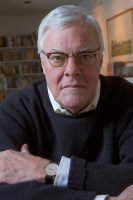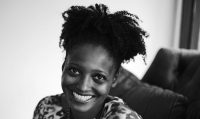September 1, 2016
Edited by David Sanders
Specimen Days
1855— Innokenty Annensky, Omsk, Russian Empire, poet, critic and interpreter (poètes maudits), is born.
1887— Blaise Cendrars, [Frederic Sauser-Hall], Swiss poet/writer, is born.
1953— Bernard O'Dowd, Australian poet (b. 1866), dies.
1967— Siegfried L Sassoon, English poet/writer (Counterattack), dies at 80.
1998— Józef Krupiński, Polish poet (b. 1930), dies.

Orion
It’s my constellation
It’s shaped like a hand
It’s my own hand high in the sky
All through the war through a gap I saw Orion
The Zeppelins that came to bomb Paris always came from Orion
Today it’s above my head
The long pole pierces the palm of the hand that must suffer
As my severed hand makes me suffer pierced constantly by a spear
— by Blaise Cendrars (1887–1961), A.S. Kline, trans.
“It’s my constellation / It’s shaped like a hand / It’s my own hand high in the sky”— by Blaise Cendrars, A.S. Kline, trans.
World Poetry
Leading Bangladeshi Poet Shahid Qadri Dies in New York

Shahid Qadri, one of the greatest poets of Bengali Literature, has died at a New York hospital on Sunday. He was 74. Vaila Salina, a New York-based poet, confirmed the news to the Dhaka Tribune.
Shahid Qadri, one of the greatest poets of Bengali Literature, died at a New York hospital on Sunday.
Recent Reviews
Basil Bunting
by Anthony Howell
Basil Bunting POETS MIGHT BE categorized as talkers, rappers, singers or intoners. John Donne, Alexander Pope and Ian Hamilton were talkers, as is Hugo Williams. John Skelton was a rapper. Sir Thomas Wyatt, Manley Hopkins, Edith Sitwell and Dylan Thomas were singers, while Walt Whitman and Ezra Pound were intoners. Obviously a poet in one category may share qualities with another category, so Skelton can also be a singer, when he uses “Rhyme Royal”, just as Wyatt can also be a talker. Basil Bunting intones like his master, Pound; but he can also sing.
Absolving Seamus Heaney from Any Charge of Simplification
Broadening perceptions of Heaney via his prose and place in European intellectual thinking
by Bernard O'Donoghue
Eugene O’Brien’s primary purpose in placing Seamus Heaney as a thinker in the tradition of what he calls European aestheticism is to absolve him of the charge of simplification or “safeness” that was sometimes levelled at him. So by definition this is a complicating enterprise.
America’s Philosopher Poet
by John Yau

The Swimmer is John Koethe’s tenth book of poetry. For many years, he was Distinguished Professor of Philosophy at the University of Wisconsin, Milwaukee until he retired in 2010. In addition to his poetry, he is the author of The Continuity of Wittgenstein’s Thought (1996) and Skepticism, Knowledge, and Forms of Reasoning (2005). While Koethe doesn’t consider himself a “luminary” in philosophy, like Simon Critchley or Graham Harman, it is clear that he is a widely respected authority on subjects of fundamental interest – language usage and the idea that certain knowledge is impossible to gain. Or, to put it simply, how do we know what we know?
A Poet Subverts the Defense Department’s Official Dictionary
by Natalie Diaz
The poet and activist June Jordan once wrote that “poetry means taking control of the language of your life.” Solmaz Sharif does just that in her excellent debut collection, “Look,” pushing readers to acknowledge a lexicon of war she has drawn from the Defense Department’s Dictionary of Military and Associated Terms. Language, in this collection, is called upon as victim, executioner and witness.
The Swimmer is John Koethe’s tenth book of poetry.
Broadsides
“Since the Day I Was Kicked by Master Ma, I Have Not Stopped Laughing”: Buddhism and Comedy in Philip Whalen
by Max Ritvo
A student on the verge of enlightenment approaches his master with a question; the master smacks the student on the head, or kicks him, until he is enlightened. Of the student’s possible reactions, the one I find most compelling is laughter. Perhaps my favorite example is from the record of the Tang dynasty Zen master Ma-tsu. A dialogue in the record tells of a student who is kicked to the ground after asking a question about the nature of Zen. The student laughs, claps, and exclaims, “Wonderful! Wonderful! The source of myriad samadhis [states of meditative consciousness] and limitless subtle meanings can all be realized on the tip of a single hair.” Later he remarks, “Since the day I was kicked by Master Ma, I have not stopped laughing.” He went on to become a Zen master himself.
Philip Whalen explores Buddhism and comedy in his poetry.
Drafts & Fragments
The Inaugural Poem under a Trump Presidency: An Adynaton
by Dean Rader
During the last presidential campaign, when it looked possible that Mitt Romney could defeat Barack Obama, a small group of poets mused, over drinks of course, who Mr. Romney might be most likely to ask to read the inaugural poem if he were elected. We tossed out a few names and wondered if those folks would accept Mr. Romney’s offer. We figured some would but most would not. As Benjamin Nugent argued in n+1, there are very few Republican writers of note; so, the pool of sympathetic poets seemed pretty small. We didn’t think many writers would be eager to align themselves with a Romney/Ryan ticket. It is impossible to know, but I would probably take the unders on that one.
How To Sell Nearly a Half-Million Copies of a Poetry Book
by Anisse Gross
Andrews McMeel Publishing has long been known primarily as a humor and gift book publisher, but the Kansas City–based company could currently be the country’s hottest publisher of poetry books. The publisher has a major hit with its third poetry book, Rupi Kaur’s originally self-published Milk and Honey. The 2015 title has sold, SMP said, 450,00 copies to date and continues to move around 30,000 copies per week. Its release comes after a foray into a genre that SMP has rarely dabbled in.
Kansas City-based Andrews McMeel Publishing is the country’s hottest publisher of poetry books.
Poetry In the News
Pulitzer Prize-Winning Poet Talks Environmental Conservation
Pulitzer Prize-winning poet Prof. Gary Snyder, English, University of California at Davis, received a standing ovation after his lecture Wednesday evening where he discussed his work’s relationship to environmental conservation.
Max Ritvo, Poet Who Chronicled His Cancer Fight, Dies at 25

Max Ritvo, an accomplished poet who spent much of his life under the cloud of cancer while gaining wide attention writing and speaking about it, died of the disease on Tuesday at his home in Los Angeles. He was 25.
Poet Max Ritvo died of cancer in Los Angeles at the age of 25.
New Books
Cannibal by Safiya Sinclair
[Paperback] University of Nebraska Press, 126 pp., $16.98

Colliding with and confronting The Tempest and postcolonial identity, the poems in Safiya Sinclair's Cannibal explore Jamaican childhood and history, race relations in America, womanhood, otherness, and exile. She evokes a home no longer accessible and a body at times uninhabitable, often mirrored by a hybrid Eve/Caliban figure. Blooming with intense lyricism and fertile imagery, these full-blooded poems are elegant, mythic, and intricately woven. Here the female body is a dark landscape; the female body is cannibal. Sinclair shocks and delights her readers with her willingness to disorient and provoke, creating a multitextured collage of beautiful and explosive poems.
Words on the Street: Poems by Anna Rabinowitz
[Paperback] Tupelo Press, $16.95
Words on the Street is set in the center of a mystery. An infant is abducted and seven symbolic figures play their metaphoric fiddles while humanity is plagued by chronic threat, insecurity, and confusion. This is not a book for the faint of heart. It is to be read at the peril of complacency. It situates the reader in a landscape choked with graffiti, teeming with hearsay and falsehood. Human existence roils with questions about artifice and reality; the absurd and the comic; good and evil; the knowable and the unknowable. Above all, the words on the street, namely Anna Rabinowitz's words, pave the street we all inhabit, speaking from the primal core of the human predicament: the conundrum between two whys.
Likenesses by Heather Tone
[Paperback] American Poetry Review, 66 pp., $15.00

Likenesses was selected by Nick Flynn for the prestigious Honickman First Book Award. In his introduction he writes: "Likenesses is made up of five sequences of poems, many of which use the engine of simile to drive them forward. Running alongside this simile-generating machine, there is something also here of Genesis—the book is, in part, an origin myth, an attempt to create the world by naming it."
Desert Center by Miles Waggener
[Paperback] Stephen F. Austin University Press, 88 pp., $16.00
Desert Center embraces the complexities of the particular in place and person, from the deserts of the Southwest to his current home territory in Nebraska. Indeed, Waggener’s heartland is wherever his poetic visions land, regardless if they are open, spare places or urban streets; they explore, as well, so wonderfully the characters who populate such territory, unnoticed people whose presence can only command notice from a poet such as Waggener.
Model Disciple by Michael Prior
[Paperback] Véhicule Press, 78 pp., $17.95

A mesmerizing and moving first collection, Model Disciple gives us a poetry of two minds. Confounded by Japanese-Canadian legacies too painful to fully embrace, Michael Prior’s split speakers struggle to understand themselves as they submit to their reinvention: “I am all that is wrong with the Old World, / and half of what troubles the New.” Prior emerges as a poet not of identity, but identities. Invented identities, double identities, provisional identities—his art always bearing witness to a sense of self held long enough to shed at a moment’s notice. Model Disciple‘s Ovidean shape-shifting is driven by formal mastery and mot juste precision. It’s also one of the most commanding poetic debuts in years.
Correspondences
Tracy K. Smith on God, Poetry, and Parenting in New York City
by Paul Holdengraber

In part one of their conversation, the poet Tracy K. Smith talks with Paul Holdengraber about God, death, parenthood, and loving children the way we love books.
A Poet’s Ambivalence at Work
by Peter Mishler
Camille Rankine is the author of Incorrect Merciful Impulses, published by Copper Canyon Press last year. She has earned several honors accorded to younger poets, including the “Discovery”/Boston Review prize. Among her other professional roles, Rankine serves on the executive board of VIDA: Women in Literary Arts. She lives in New York City.
My intention for this interview was to understand Rankine as a reader of her own work: what does the poet see when she looks at what she has made? Her responses to this theme, coupled with our conversation about her upbringing and emergence as an artist, reveal an intelligence navigating our world — and her poetic one — with wit and skill, and most significantly, a commitment to “possibilities other than the ideas or attitudes I’m at ease with.”
Beth Ann Fennelly: Why Poetry is Important
by Onelia Hawa
Mary Anna Malich, who lives in Chicago, and her daughter, Beth Ann Fennelly, a resident of Oxford, Miss., had recently driven into Jackson from Memphis. Then Malich sat on a cushioned seat in the state capitol's rotunda as her daughter delivered her very first speech as Mississippi's new poet laureate.
Tracy K. Smith on God, poetry, and parenting in New York City.
Envoi: Editor’s Notes

"In 1917 I had just written a poem that astounded me by its fullness, its modernity, by everything I’d put into it; it was so antipoetic! I was delighted. And at that moment I decided not to publish it, to let modern poetry get along without me, to see what would happen to it. I nailed this unpublished poem in a chest; I put the chest in an attic in the country, and I set myself a limit of ten years before I’d take it out to publish it. That’s more than thirty years ago, and I believe the time has not yet come to publish it."